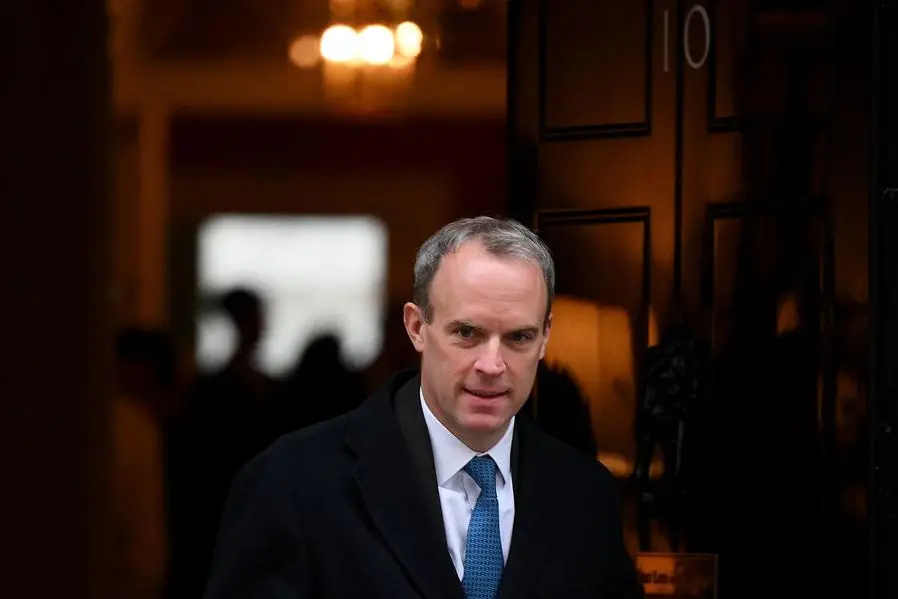PHOTO
UK Deputy Prime Minister Dominic Raab announced his resignation on Friday after bullying claims against him were upheld in a report, a fresh political shock for Britain's Conservatives.
Raab's resignation gives Prime Minister Rishi Sunak a headache some two weeks before local elections at which the Conservatives are expected to lose seats.
He is also battling to claw back a chasm of lost ground to the main opposition Labour party before a general election next year.
Raab, who stood in for former prime minister Boris Johnson as he battled Covid in 2020, had promised to quit if any claims against him were upheld.
But even though he was cleared of most of the allegations, he blasted the conclusions of a lawyer-led inquiry.
"Whilst I feel duty-bound to accept the outcome of the inquiry, it dismissed all but two of the claims levelled against me," he wrote in a resignation letter.
"I also believe that its two adverse findings are flawed and set a dangerous precedent for the conduct of good government."
The bar for bullying was set so low, he said, that "it will encourage spurious complaints against ministers and have a chilling effect on those driving change".
Raab also resigned from his post as justice secretary, where he has had to battle a backlog in criminal cases caused by years of under-funding and disruptions caused by the pandemic.
He previously served as Brexit minister and foreign secretary but was moved from that post after being criticised for failing to return from holiday as Afghanistan fell to the Taliban.
Sunak, who succeeded the short-lived Liz Truss in October last year, vowed to restore "integrity, professionalism and accountability" in government after Johnson's rollercoaster tenure.
He previously sacked Nadhim Zahawi as Conservative party chairman over his tax affairs.
Gavin Williamson, a former defence secretary who kept a tarantula on his desk while in charge of party discipline in parliament, quit over expletive-laden messages.
- Low bar -
Former lawyer Raab, a karate black belt, has denied bullying civil servants working for him and in his letter rejected allegations of an overbearing manner with colleagues.
He insisted in his letter that ministers "must be able to exercise direct oversight with respect to senior officials over critical negotiations conducted on behalf of the British people".
Not to do so, he said, would mean the loss of "the democratic and constitutional principle of ministerial responsibility".
He also maintained ministers "must be able to give direct critical feedback on briefings and submissions to senior officials in order to set the standards and drive the reform the public expect of us".
"Of course this must be done within reasonable bounds," he went on.
Sunak appointed senior employment lawyer Adam Tolley to look into the claims in November and he submitted his report to Sunak into eight allegations on Thursday.
The report has yet to be published.
But Raab said Tolley "concluded that I had not once, in four and a half years, sworn or shouted at anyone let alone thrown anything or otherwise physically intimated anyone, nor intentionally sought to belittle anyone".
"I am genuinely sorry for any unintended stress or offence that any officials felt, as a result of the pace, standards and challenge that I brought to the Ministry of Justice," he added.
"That is, however, what the public expect of ministers working on their behalf."





















